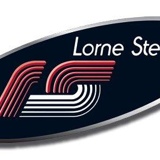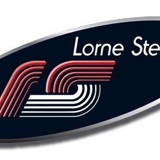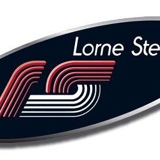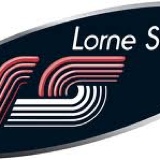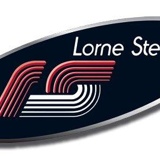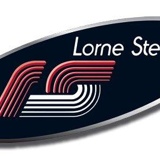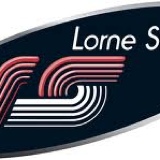Information
-
VTN Contract Specific Induction & H&S Guidelines
-
Document No.
-
Conducted on
-
Prepared by
-
Location
-
Please Note: This induction should be completed in conjunction with VTN.IB001. Health & Safety Requirements presentation.
If undertaking any works the Lorne Stewart Site Induction Checklist SD1.7.1 (formerly LSHSD25) must also be completed in addition.
A valid photo identity card must be worn and clearly displayed at all times.
All staff working (including subcontractors) must receive this induction, H&S guidelines and any applicable risk assessments which must be retained for reference.
1.0 - Inductee(s) Details;
-
Enter inductee(s) details
Inductee(s)
-
Name:
-
Employer:
-
Provide further details (i.e. subcontractor, agency or employer name etc)
-
Station(s) working at:
- Birmingham International
- Birmingham Meridian House
- Birmingham New Street
- Carlisle
- Coventry
- Crewe
- Crewe Training Centre
- Edinburgh Waverley
- Glasgow Central
- Holyhead
- Lancaster
- Lichfield Trent Valley
- Liverpool Lime Street
- London Euston
- Macclesfield
- Manchester Piccadilly
- Milton Keynes Central
- Oxenholme Lake District
- Penrith (North Lakes)
- Preston (Lancs)
- Rugby
- Runcorn
- Stafford
- Stockport
- Stoke-on-Trent
- Warrington Bank Quay
- Wigan North Western
- Wolverhampton
2.0 - Induction Details;
-
2.1 - Introduction. Lorne Stewart provide Virgin Trains Network works including station and accommodation cleaning, periodic heavy cleaning, window cleaning, vegetation control and mechanical, electrical and fabric Reactive and Planned Preventative Maintenance (PPM) Works; comprising of 28 station and office locations from London to Edinburgh (see network map).
-
2.2 - Dress Code. All (including subcontractors) must be neat and tidy in appearance, well groomed and properly dressed at all times. Proper dress code is defined as Lorne Stewart apparel (LS employees only) including any safety clothing as supplied. Note specific Virgin Trains requirements.
-
2.3 - Safety, Health & Environment (SHE) Queries. If you are in any doubt about the appropriate SHE measures or any issue arising to ensure the safety of yourself, Virgin Trains employees, passengers, and third parties, you must refer the matter to your Lorne Stewart management and if necessary Virgin Trains staff immediately.
-
2.4 - Safety, Health & Environment Policy. Any work on Virgin Trains premises must be carried out in accordance with local rules, railway regulations and safety instructions issued by Virgin Trains.
-
2.5 - Lone Stewart Rail Sector Management Procedures. These procedures support our activities within the rail sector and in particular specific requirements such as; Drugs and Alcohol / Unannounced Drugs and Alcohol Testing / For Cause Screening (Drugs and Alcohol) / Medical Assessments & Personal Track Certification / Refusal to Work / Safety Critical Railway Operations (Working Hours)
-
2.6 - Medical Condition. You must inform Lorne Stewart Management if you have or suffer from any medical condition, or take any medication we need to be aware of now or in the future.
-
2.7 - PTS Restrictions. PTS staff must inform Lorne Stewart of any restrictions including; Red Triangle, Blue Spot and Green Square and any any medical condition, or take any medication we need to be aware of now or in the future.
-
2.8 - Site Monitoring. Regular monitoring shall take place by Lorne Stewart staff to ensure work is up to standards and where applicable any regulatory requirements. Inspections by Virgin Trains staff may also be undertaken.
-
2.9 - Alcohol and Drugs. Where the behaviour of any person gives cause to suspect that he or she is unfit for duty due to the effects of alcohol or drugs, in accordance with Virgin Trains the individual will be stopped from working, and taken to a place where procedures can be implemented for medical personnel to come to site to conduct an alcohol and/or drugs test.
-
2.10 - Authority to Access. All Contractors must have authority for access to the site from Virgin Trains. Authority is subject to a suitable method statement and risk assessment. For works on or near the rail infrastructure procedures and control measures in accordance with Network Rail Standards will be implemented.
-
2.11 - Signing In. Before commencing any works you must report to the Virgin Trains office, announce your arrival, sign the log book, record the date and time, the nature of the work and its location. You must also sign in the Lorne Stewart site attendance register.
-
2.12 - Identification. A current and valid Lorne Stewart identity card (or subcontractors) must be worn, prominently displayed and visible at all times when carrying out work. Individuals without identification will be told to stop work and sent from site and their Line Manager informed.
-
2.13 - General Safety. Always consider the safety of other people when working; Do not leave tripping hazards lying around / Do not block emergency access or egress points / Clean all spillages promptly.
-
2.14 - Rail Hazards. Trains may pass through stations without stopping as high as 125 miles per hour at any time running in either direction. Trains cause considerable air turbulence. Ensure materials and equipment are adequately secured and not in danger of being sucked under passing trains or blown into passengers, staff or colleagues. Where a yellow line has been painted on the platform; this indicates either very high speeds or a high risk of turbulence.
-
2.15 - Station Platforms. You are not authorised to carry out any work within 1.25 metres (4 feet) of any platform edge or within 2.75 metres (9 feet) of the railway overhead electrified lines. The use of aluminium ladders / access equipment is prohibited on railway stations.
-
2.16 - Station Security. Do not leave any items of equipment, bags, and toolboxes unattended. Do not leave lockable doors unlocked at any time, and do not permit tailgating. Be aware of suspicious packages, articles or persons. Ensure that any vehicles are correctly parked and identified. If you do observe anything suspicious, report the facts immediately to a member of Virgin Trains staff.
-
2.17 - Running Lines. Under normal working conditions, you cannot ever go onto, or alongside a running line. To do so requires PTS staff and the authority of Network Rail. If you become aware of any of the following immediately inform a member of station staff or if the situation warrants dial 999; People trying to board or alight from moving trains / Doors open on moving trains / People trying to board or alight from moving trains / Doors open on moving trains / Fire or excessive smoke from trains / Defects or damage to overhead live wires / Damage or obstructions on track / Malicious people or suspect packages / Train accidents
-
2.18 - Station Floors. Do not remove any floor section without prior permission from Virgin Trains. All floor sections must be replaced and secured as soon as practicable. Substantial, secure barriers must be erected around any hole. Warning notices must be posted by day and suitably illuminated during hours of darkness.
-
2.19 - Barriers. Any barriers, guards and screens must have suitable notices displayed and denote the hazard. Do not move any barriers, guards, screens or notices unless they have been erected by our own employees or Subcontractors in the course of our work.
-
2.20 - Work at Height. No Work at Height must be carried out when it is reasonably practicable to carry out the work safely otherwise. Any works at height must not be at risk of falling persons, tools or equipment into (i) a zone demarcated by means of a yellow line and (ii) within 1.25m of the platform edge or 2.75m of any overhead electrified lines. Any work in a roof space above public areas must have suitable arrangements for protecting people below from falling debris etc. The use of aluminium ladders / access equipment is prohibited on railway stations.
-
2.21 - Electrical Safety. All electrical work shall be carried out in accordance with Regulations, BS 7671 and by competent persons. Suitable and sufficient risk assessments must be carried out for electrical works and any control measures identified implemented including any permits. Working live is strictly forbidden. Any circuits to be worked on will be treated as live until verified dead. There are no exceptions to this requirement. The location of any buried live electricity cables must be identified prior to any ground work. Use a residual current circuit breaker when using electrical tools and equipment. Whenever possible, 110 volt dc equipment. Electrical sockets must not be overloaded. Electrical plugs must be in good condition at all times, the flex must be firmly clamped. All electrical joints must be sound. Frayed and damaged cables must not be used.
-
2.22 - Hand Tools. All tools and equipment must be fit for purpose, in good condition and used appropriately. They must be checked periodically for safety (recorded) and each time before use. They must not be left on the Site to be abused or stolen.
-
2.23 - Test & Measuring Equipment. All calibrated equipment must be within test date and suitably annotated. Calibration certificates must be retained for the life of the equipment. Any equipment used for “indication purposes only” must be annotated accordingly, tested periodically for safety and verified for accuracy. All test and measuring equipment must be to a GS38 standard, checked periodically for safety (recorded) and each time before use.
-
2.24 - COSHH. Chemicals or substances must not be used or brought onto a station unless they have been COSHH Assessed and approved by Virgin Trains.
-
2.25 - Use of Flammable Liquids and Gases. Any work that involves the use of flammable substances, naked flames or combustible conditions, must be prior approved by Virgin Trains. All flammable materials e.g. butane, propane, acetylene, hydrogen, petroleum and diesel fuel must not be stored anywhere on Virgin Trains Sites. Flashback arresters must be fitted to all flammable gas cylinders. All gas bottles must be accommodated in suitably designed moveable wheeled carriers. A permit to work must be raised for all hot works by an Authorised Person.
-
2.26 - Accident / Incident. Any accidents / incidents must be reported to Virgin Trains and Lorne Stewart and relevant paperwork completed.
-
2.27 - First Aid. First aid facilities are normally available. All locations have a qualified First Aider to assist where required. In the event of an emergency call 999.
-
2.28 - In an Emergency. If evacuation of the station is required, the alarm will sound, or you will be advised by other pre agreed means you must go to the assembly point. Do not attempt to tackle a fire unless you can do so quickly and effectively: if in doubt, raise the alarm & leave the building immediately and go to the assembly point. Report any suspicious packages to a member of staff. Do not touch. Do not use mobile phones during a bomb alert. Do not leave tools and materials unattended.
-
2.29 - PPE. PPE must be used correctly, and suitable for the task and location. Safety helmets and safety footwear must be worn in any construction areas, plant rooms or service ducts. Shorts, jeans, trainers etc are not permitted. A high visibility orange vest with ‘Lorne Stewart’ on the back must be worn on station platforms and roadways. You must not wear any visible red or green clothing whilst working on platforms.
-
2.30 - Fire. All persons must have the fire safety brief from Virgin Trains, advising how to raise the alarm, evacuation routes, and assembly points. The site must be kept clear of flammable waste. Fire points, access/exit points and roadways must be kept clear of obstructions at all times.
-
2.31 - Waste. General non hazardous cleaning waste may be disposed of in the agreed station waste reciprocals. For engineering works LSHSD26 shall be used to record the movement of non-hazardous and hazardous waste. Where a mobile engineer produces hazardous waste, the Mobile workers hazardous waste consignment log must be used if the waste is moved off the site. Waste must be stored securely to prevent it from escaping, leaching or scavenging by persons and animals. The discharge of oil or other pollutants to any drains, gullies or soakways is expressly forbidden. Subcontractors must remove all waste generated.
-
2.32 - Asbestos. Virgin Trains shall confirm the presence of any asbestos. You must ensure that all precautions are taken when working near asbestos. If you suspect you have located asbestos or have any doubts about the nature of an unknown substance, immediately stop work, seal off the affected area and notify Virgin Trains and Lorne Stewart management. The asbestos register must be consulted before the undertaking of any works. Work must be stopped immediately if there is a suspicion of asbestos.
-
2.33 - Needlesticks & Sharps. If you find a needle-stick or sharp inform Virgin Trains staff immediately. Do not touch. Control access to the contaminated area until assistance arrives. Be aware that there maybe other within the area and proceed with caution. In the event of a puncture wound occurring; Encourage the wound to bleed, do not suck the wound / Rinse thoroughly under running water. If water is not available, cleansing wipes provided in first aid kits should be used / Cover the wound with a dry plaster /dressing / Seek medical advice and treatment immediately and go to the nearest Accident & Emergency Department / Report the incident to your Virgin Trains and Lorne Stewart management who will inform the LS SHE Manager.
-
2.34 - Signing Out. Once you have finished sign out of the Lorne Stewart attendance register and sign out Virgin Trains. Once you have signed out, you must not commence any work until you have again signed in.
3.0 - Confirmation
-
Lorne Stewart Line Manager. I confirm that I have provided this induction for Virgin Trains Network including H&S Requirements for Contractors Engaged by Virgin Trains.
-
Inductee(s): I confirm that I have received an induction for Virgin Trains Network including H&S Requirements for Contractors Engaged by Virgin Trains.
Inductee(s)
-
Name & Signature
-
Comments:
